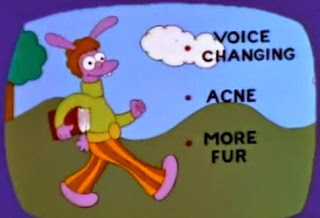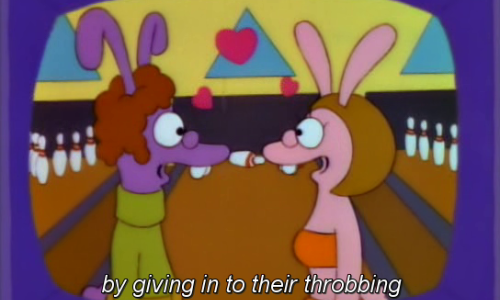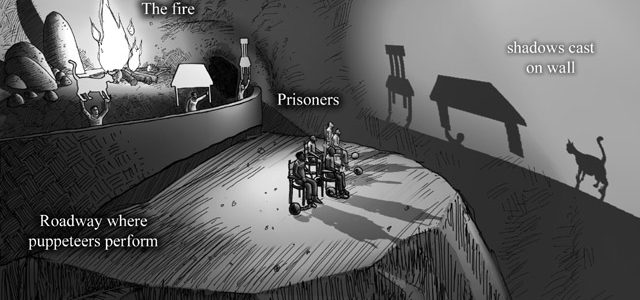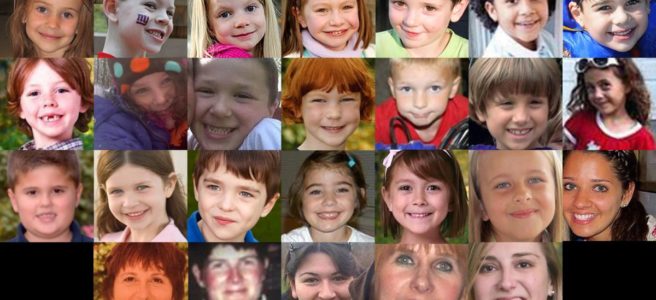So if you live in Ontario like me, then you have probably heard that there’s a bit of a kerfuffle regarding Kathleen Wynne’s sex ed curriculum, with social conservatives/religious folk going mildly insane (to put it lightly). My parents have said that if this curriculum was in place when my brothers and I were going through school, they would have home schooled us instead of putting us through the public school system. However, as much as I dislike Kathleen Wynne, I actually think that there’s a lot of fuss being put up unreasonably here. Don’t get me wrong – coming from a socially conservative background, I can understand why a subset of people are freaking out about this, but I believe that the amount of things that they would find objectionable are significantly less than they would expect (in case you didn’t notice, there is A LOT of ridiculous misinformation and hyperbole being passed around conservative political circles to try to create a public outcry out of sheer ignorance).

Let’s go through some of the more “controversial” aspects of the curriculum. First off, is the fact that the curriculum starts in Grade 1 (ages 6-7). This might seem a little early to some people, but it’s not like they’re actually learning about where to stick their naughty bits. Is it so horrifying for children to learn the proper names for their genitals? I don’t see a problem with this at all. I think in Grade 1 I was tittering like a madman whenever someone mentioned a “pee-pee” and quite embarrassingly didn’t realize that “boobs” were not the same thing as “nipples”, leading to me to idiotically claim that some other kid was showing off his boobs. Boobs-aside, I was basically 100% ignorant about what made girls different at this time, but having children be aware of these sorts of things is hardly going to destroy their innocence. If anything, it’ll be good to pave future groundwork, hence why they’re starting the very, VERY basics so early. If nothing else, it’ll make for the funniest day of class for a first grader.

After that, I can’t really see anything else that’s potentially objectionable until Grade 6 (ages 11-12) and Grade 8 (ages 13-14), where they bring in the idea of gender identity and sexual orientation. Now I personally do not see the issue with this, there are some that will argue that the intent here is to cause kids to become more open to homosexuality and trans-gender people and view it as something “normal” and “natural”. And you know what… as a Christian man, I say FREAKING GOOD. I’m obviously intimately aware of how difficult the subject of homosexuality is in the church (and for good reason, let’s admit), but the general consensus at the moment in the evangelical church seems to be “love the sinner, hate the sin”. However, the historical approach to homosexuality has shown anything BUT love to these people. What Christians have shown is centuries of exclusion, belittlement, ignorance, outright hatred and violence towards homosexuals. Children have been forced out of their homes for being gay, lost friends, have been kicked out of communities, have committed suicide, have faced barrages of insults, have suffered with AIDS while the government ignored them (“because it was just a disease that affected the fags, so good riddance”), etc. If this can be stopped, then bring it the hell on as far as I’m concerned, and maybe we’ll start seeing less disproportionate vitriol thrown towards these “sinners”. Not saying that the church will/should suddenly become a-ok with homosexuality or start performing gay marriages, but we at least should give them equal treatment and avoid discrimination and judgement… y’know, like our religion instructs us to do.
Furthermore, homosexuality and gender identity IS A THING THAT EXISTS, as much as some people may want to ignore it and regardless of the causes. If anything, Grade 6 might be too late to bring this topic up, since many people who identify as homosexual claim that they knew it at a young age, and the other kids were definitely calling each other “fags” long before this… In any case, it’s obviously a topic that has to be raised at some point, and pretending it doesn’t exist or isn’t something natural (which it is, like it or not*) isn’t going to make it go away or help your children when they encounter it for themselves… or, God forbid, identify as queer in a religious family.
Grade 6 also brings in the concept of masturbation, a very… er… touchy subject for the religious folk. For one thing, it happens to be something that kids are going to be encountering around this timeframe, and considering that almost every man (and a great deal of women as well) does it, it’s kind of hard to call it something “unnatural” (and that’s not even mentioning the damn, dirty apes). It’s also worth noting that it’s a rather grey area in Christianity at least: it isn’t considered an inherently sinful thing, but the argument is that it is straddling about a half dozen other sins, so it’s best to avoid it. Some people, like my parents, believe that this curriculum teaches children to masturbate, but that’s not really the intent – like I said, many kids are already going to be starting this practice by this time, so it’s more meant to come across as “yeah, you’re not crazy for doing this, basically everyone does”. As for whether kids are going to start because of this… well, that’ll be up to the kids I suppose, but there’s a good chance that they already have heard about it by this point. If you don’t want your kids doing it, be sure to shame them for it early so that they’ll feel awful about it for the rest of their lives when they inevitably start doing it.

Anyway, moving on. In my opinion, one of the more ridiculous controversies is how, in Grade 7 (ages 12-13), students are taught about oral and anal sex. Well let’s get this out of the way first – they already teach this in the current Grade 7 curriculum if I remember correctly (or, at the very least, my class was taught about it). In addition, kids are probably already aware of these concepts by the time they hit the 7th grade. Again, I grew up in a sheltered home and I was still at least dimly aware of both of these concepts, even if I didn’t understand why someone would want to do either (and I’m sure my classmates were far more familiar than I was). It’s not like this is a new idea they were implanting in our heads. With access to the Internet, kids are going to come across these ideas earlier and earlier, so it’s important to educate them at a realistic time period. Finally, the curriculum DOES NOT ADVOCATE ANAL SEX. My parents are in an uproar about them teaching the butt-stuff because they view it as an abomination and figure they’re trying to get kids to try it out. However, the curriculum explicitly states not to do either of these activities because they can give you an STI. I believe that by Grade 7 I had heard the old jokes about how “Catholic girls do it in the ass”, and that is a stereotype in the first place because girls try to avoid getting pregnant, losing their virginity (because it only counts if it’s vaginal apparently…?) and/or getting an STI. Letting them know that they can still get an STI is probably going to help to discourage some people from trying it out. Similarly to masturbation, anal and oral sex are things which exist, and science can’t determine if anal sex is going to make God angry. If you want to bring the your own moral compass into it, then supplement your childrens’ education with your own teachings when they get home.
Anyway, moving on again. In Grade 8, students “analyze the benefits and risks of relationships involving different degrees of sexual intimacy”. I can definitely hear my parents saying that this is encouraging kids to have sex, but I’m not so sure I agree. If anything, it’s being realistic and getting kids to make an informed decision, because I good deal of them are likely going to do it anyway within the next few years, no matter what they have been brought up to believe (for reference, I am aware that at least a half to two-thirds of the professing Christians I grew up with had sex in high school without a regret, despite all of them having been taught by the church and their parents as well likely not to do so). Being aware of the risks may not get them to abstain, but at least they’ll be aware of exactly what they’re getting into if they do decide to go forward with it.

However, there are also some positive elements that those who decry the curriculum fail to acknowledge. First off, starting the curriculum so early will actually help to prevent child sexual assault. In many cases, exploited children are unaware of what constitutes exploitative behaviours and so they go unreported. For my own part, we were simply told not to talk to strangers, but we had no idea why or what they were trying to protect us from. I easily could have gotten abused and not realized it. Leaving it at “don’t talk to strangers” also ignores the fact that the vast majority of molestations are committed by family members or their friends.
The Grade 3 curriculum is pretty realistic. I can remember pretty clearly quite a few kids “going out” at this time, so best to get those under control so they’ll start to get the groundwork for more realistic future relationships. Developing safety guidelines for Internet use is also extremely critical, and would hopefully be supplemented by parental discussion. Grade 4 (and Grade 9) is pretty similar in that regard – kids seem to be getting cell phones earlier and earlier, so sexts and snapchatting and various other things will need addressing, PRONTO.
People also seem to be missing one of the overall messages of the curriculum – it recommends not having sex until you are physically and emotionally ready (be that in marriage or whenever, that’s up to the individual, as it should be). Holy shit, are you telling me that this evil curriculum co-written by Satan himself and contracted by a diabolical lesbian who is hell-bent on transforming our children into lustful paedo-orgy machines actually teaches kids not to have sex? Conspiracy! Furthermore, the emphasis on consent is EXTREMELY important in a day and age where “rape culture” is becoming more and more visible, and will probably result in less sex as well. Identifying STIs is pretty important as well, I think we might have gotten 1 day of that in sex-ed back in grade 7 or 8, and I can’t remember a single thing from it. I couldn’t tell you what any STI looks like, let alone specify them.
The high school curriculum is quite good as well. I had about 2 days of sex-ed in high school, in grade 10, and only because I took phys-ed after it became an elective (most people ditch it after grade 9). 1 year of sex-ed, when a lot of people are already engaging in sexual activity and when some of them are going to be giving birth or freaking married in a few years, is woefully inadequate. Even if you are against having your kids having sex in high school, this stuff is still extremely applicable for later in their lives to help them make healthy choices and relationships, and will probably make their marriages more fulfilling.
Beyond all of this though is the major issue of growing up in a world where the Internet has always been a thing. Kids are now getting more access to sexually explicit material and misconceptions at a younger and younger age, making frank, honest, realistic education absolutely crucial. Sure, perhaps you happen to be an amazing parent, but so many children won’t get the necessary information at home, and if we keep the current system then we’ll only continue to churn out children who think that “donkey punching” or yelling “fuck her in the pussy” on live television is hilarious, who joke about rape and sexual assault, and who don’t even have the presence of mind to realize that pressuring someone into sex is wrong.

I’m going to have to put some special grilling towards the Campaign Life Coalition as well, since they’re one of the main organizations protesting the curriculum changes… and because they’re batshit insane. The hypocracy of CLC (a pro-life organization) protesting these changes is that they will probably LOWER the number of abortions compared to an abstinence-focused curriculum. Educate kids on their bodies, encourage them to make healthy choices and provide them with contraceptives, and suddenly teenage pregnancy rates drop significantly, reducing the need for abortions. Of course, CLC is obviously more of an ideological mouthpiece rather than an issue-focused organization, so this should hardly be surprising (their website is also good for a laugh with their extremely one-sided insanity).
CLC’s delusions about kids in Grade 7 still being sweet and innocent is so ridiculous that I have to go on my own little mini-rant about it. As they get further from kindergarten, kids become less “innocent little angels” to more “dirty little bastards” in my experience. Most boys are introduced to pornography when they’re around 8-12 years old, and while I was super sheltered as I have mentioned, one of my brothers and I actually fit into this one like a glove (I was 11 or 12, and he was a year younger). I had an abusive prick of a friend who invited both of us over one night, and we were hanging out when he mentioned that his sister had a porno tape. We didn’t really believe him, nor did we really want to find out if it was true, but he threw it on anyway and… well, yeah… I was too young and too sheltered to get any sort of enjoyment out of it, and it was probably mildly traumatic for me at the time. Many kids stick with it from that time onwards though – I can remember another group of friends when I was 13 or 14 talking about their favourite types of pornos (I distinctly remember one saying they blindfolded a guy and then hid a drop of honey on a naked woman, and he had to find it with his tongue). Maybe I just had really screwed up friends, but it kind of shows the sorts of things you probably weren’t aware that your kids were aware of… and c’mon, if we ditch this curriculum, then are we really going to be stupid enough to leave our childrens’ sexual education up to freaking pornography?

To summarize things, I believe that enlightenment is far preferable to so-called “blissful ignorance”. Taking kids out of this environment might make them accept their parents’ ideology… for a time. I know that for myself, discovering that an authority has held information back from you for no real benefit to yourself makes you want to look into the stuff that was withheld from you. My advice to parents protesting these changes: put your children through it, but be sure to talk with your damned kid about the things you disagree with, because they’ll probably agree with you until they’re old enough to make up their own minds about it. Teachers can influence their development of course, but a parent’s advice almost always holds major sway. Treat it kind of like how Evangelical parents treat evolution already and I imagine the results will be pretty similar. I went through science classes but always rejected evolution because I had been previously taught that it was incompatible with my faith. However, over time, I reexamined the relationship between science and religion, explored other theological ideologies outside of conservative evangelicalism and came to my own decisions about how that all works. That said, many others stick with their initial beliefs, but at least they make their own decisions in the end. If nothing else, I’m sure they’ll appreciate the knowledge gained later in life when they find themselves entering into relationships – whether you approve of them or not.
*And by this I mean that homosexuality/transsexuality isn’t exactly something that people choose, it’s something they’re either born into or develop over time (science seems to be still uncertain of the exact causes). Considering that it happens in nature is a further support that it is something which occurs naturally. Whether you believe that homosexuality only exists because of sin, I don’t think you can make a really convincing argument that it is something which is unnatural (in our modern world at the VERY least).


































